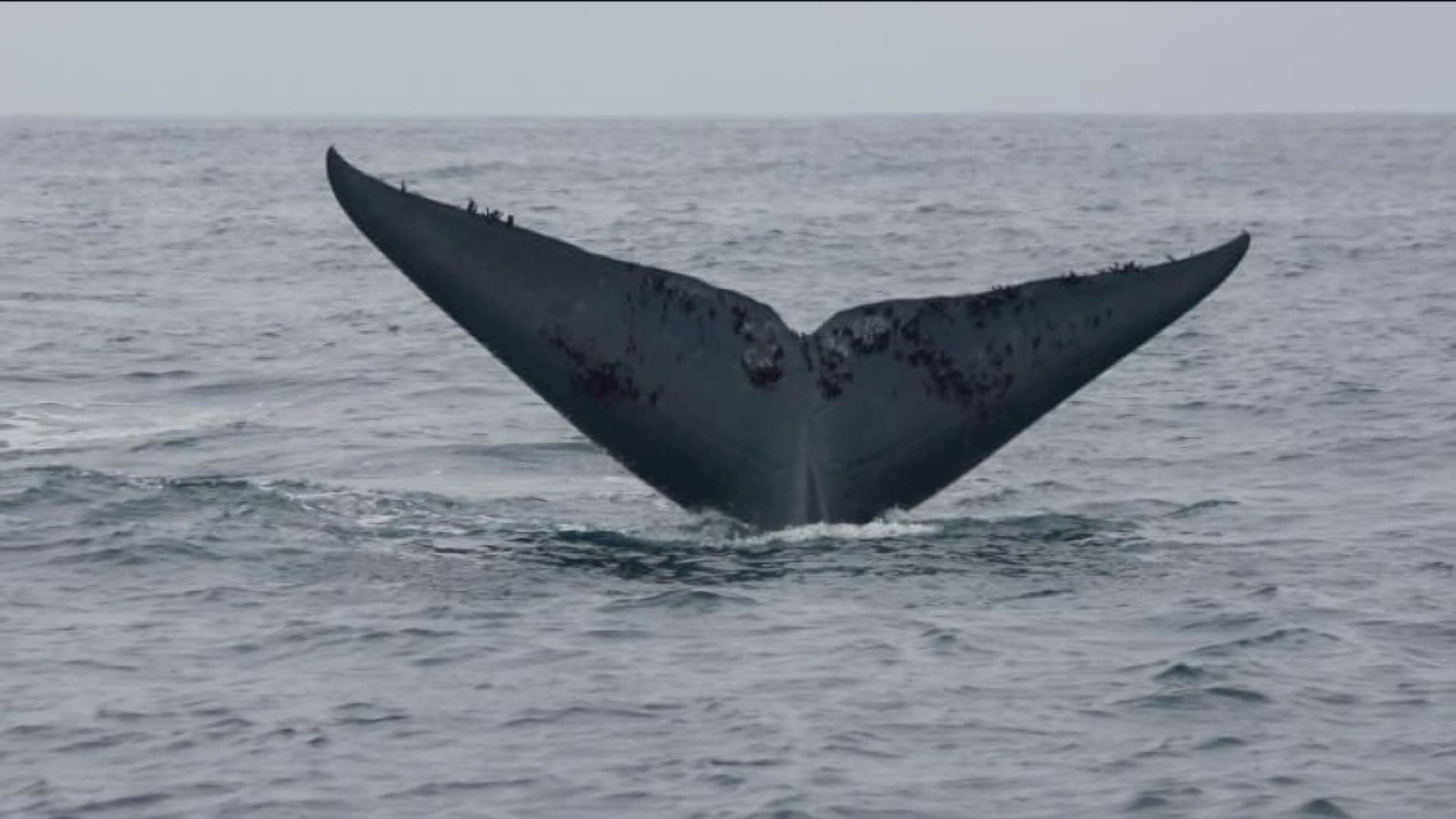SAN DIEGO — The whale sightings off the coast of San Diego have been incredible. People are getting videos of humpbacks, orcas and grey whales, but with the growth of this eco-tourism comes a warning.
CBS 8’s Neda Iranpour spoke with WILDCOAST about their new campaign to protect whales.
To see a whale is to see nature in its full glory, “they are the biggest animals on planet Earth, a blue whale. They weigh 30 elephants. Their tongue alone is the size of an elephant, and their heart is 400 pounds,” said Lillie Mulligan, an Ocean Conservation Coordinator with WILDCOAST.
When she’s not cleaning up trash out of the ocean, she’s helping spread the message of protecting the environment.
“We’re getting calls from lifeguards and other whale watching companies saying there are bad actors getting too close, spending too much time on these animals, trying to get that shot for social media.”
It’s those calls and videos like that of a whale breaching onto a boat in New Hampshire or people getting way too close that prompted WILDCOAST to create this campaign of sharing the rules of the road for what’s considered the "Blue Super Highway."
Executive Director of WILDCOAST Serge Dedina explained, “San Diego is one of the most important migratory corridors for the big ocean animals which is awesome. Big blue whales, big white sharks, big sea turtles.”
And they cruise past San Diego just a few miles from shore on their journey of tens of thousands of miles.
“Blue whales are coming back up from Baja, California and they’re going up further to the north in California. The humpbacks are going to California and Hawaii and up to Alaska. And grey whales are going all the way up from Baja back to Alaska,” said Dedina.
Part of the reason we’re seeing more whales along San Diego’s coast is conservation by WILDCOAST. They work to make sure marine protected areas are protected and fisherman are not fishing in the MPA’s. This means more sea life can thrive. It’s a sign of a healthy eco-system, which means more whales have food to eat.
It's a conservation success story that they hope continues.
“It’s easy to spend hours chasing a whale, but we want to make sure other people have an opportunity," Dedina said. "Also, we don’t want to exhaust these animals and stress them out.”
Research-backed whale watching rules
Here are some rules WILDCOAST is sharing, based off whale research.
Stay 100 yards away from a whale. That’s about the length of a football field.
And only spend about 15 minutes watching.
Never approach them from the front.
“You want to come from behind or the side,” explained Mulligan.
And turn off your engine.
“They can echo locate for 100s of 1000s of miles so if we’re creating any noise pollution in the water that could confuse where they are,” Mulligan says.
Respect the ways of the whale
Joe Cooper is a boat captain for WILDCOAST. He said he sees whales very often, but he admits he was never taught what to do about whales.
“There’s really no guidance when you take your California boat test, there’s nothing in there either," he said.
And he has come across plenty of sightings.
"There were hundreds of whales every species you could imagine," Cooper said.
He described when a blue whale got close. “It was 20 yards off our boat. It came up and dove, the whole tail came out of the water, and we could hear the water off it and you could see the barnacles … the tail was bigger than the boat.”
Thankfully it did what’s called “mugging” where it just passes by, and Captain Cooper did what he was supposed to do. He stayed still and let the animal do what it does.
But unfortunately, not everyone is doing that.
“There are more recreational boaters and tours popping up. They run and gun and get out in front of them," Captain Cooper said.
So as much as people love these animals and are diving into this exciting form of eco-tourism, WILDCOAST wants boaters to know it’s important to respect the ways of the whale.
WILDCOAST is hoping to share their educational video with boaters, and they believe proper whale watching rules should be included when getting a boating license.
Here’s a link to their “Protect the Locals” video: https://www.youtube.com/watch?v=q90QHsMPKdo
WATCH RELATED: Watchers witness 100 Blue whales off the Mission Bay Coast

